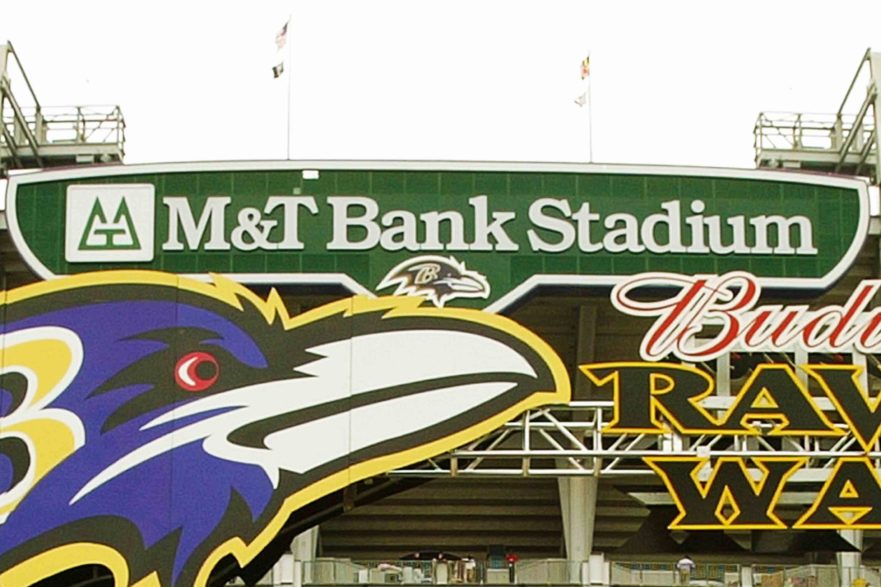M&T Bank Stadium in Baltimore, Maryland. Photo by Doug Pensinger/Getty Images.
The regulatory rollback expected to pass the Senate this week is drawing new attention for weakening the ability to detect patterns of racially discriminatory lending. Now, disclosure forms reviewed by TYT show that three former staffers of the Senate Committee on Banking, Housing, and Urban Affairs have been lobbying the Senate on behalf of a bank that was recently at the center of a discriminatory lending scandal.
The bank is M&T bank, which has hired Porterfield, Fettig & Sears to lobby for the bill, known as the Crapo Bill after sponsor Sen. Mike Crapo (R-Idaho). M&T’s 2015 purchase of Hudson City Savings Bank was held up for three years, partially due to charges of discriminatory lending practices by Hudson City. The Crapo Bill would reduce requirements for banks to report lending data that can reveal discriminatory lending.
A January disclosure form indicates M&T paid its lobbying firm $40,000 in the most recent quarter to pressure Congress on subjects including the Crapo Bill specifically.
Porterfield, Fettig & Sears CEO Lendell Porterfield is one of the Banking Committee alumni now lobbying the Senate for M&T. Porterfield is a former aide to Banking Committee member Sen. Richard Shelby (R-Ala.) and worked for the committee itself from 1996 to 2001. Porterfield’s PFS biography says that while working for the committee he played a “key role” in passing the Gramm-Leach-Bliley Act. Gramm-Leach-Bliley’s destruction of the New Deal-era firewall between savings banks and investment banks has been cited as a contributing factor in the financial crisis that ensued less than a decade later.
PFS Vice President Bryan Blom is also lobbying on the bill, and worked for the Banking Committee much more recently. Blom served as a subcommittee staff director there until March 2016.
PFS partner Dwight Fettig served as staff director of the committee itself from 2010 to 2012, in between his stints at PFS.
Lobbying forms do not indicate clients’ issue positions, but M&T cosigned a letter earlier this month urging Crapo and ranking Banking Committee member Sen. Sherrod Brown (D-Ohio) to pass the bill. While not a household name nationally, M&T is one of the nation’s 38 largest banks, and would still enjoy regulatory rollbacks under a bill that has been advertised as helping Main Street banks.
At the time of its purchase by M&T, Hudson City was closer to the type of bank originally envisioned as benefiting from the bill. Part of the delay in M&T’s purchase was the Consumer Financial Protection Bureau’s charges that Hudson City engaged in reverse redlining. (Redlining is the practice of denying housing loans to potential borrowers based on race; in the case of reverse redlining, banks avoid opening branches in communities dominated by people of color.)
Comparing Hudson City data to census data, the CFPB found that Hudson City between 2009 and 2013 seldom opened branches or marketed mortgages in black and Latino neighborhoods within the regions Hudson City served, largely in New Jersey. Hudson City eventually paid $33 million to settle the case. M&T signed off on the settlement, which helped clear the way for its purchase of Hudson City.
Jonathan Larsen is managing editor of The Young Turks.
Follow TYT Investigates on Twitter, Facebook, and YouTube to stay on top of exclusive news stories from The Young Turks.

